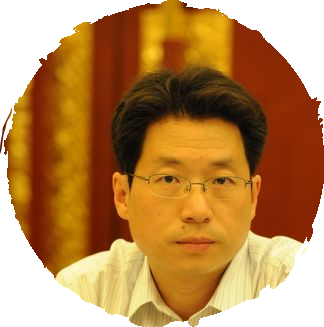



Professor Haiming Wen received his Ph.D. in comparative philosophy from the University of Hawaii in 2006. He is now a professor at the School of Philosophy, Renmin (People’s) University of China (RUC), The Beijing Center (TBC, since 2007), Yeching Academy (YCA, since 2015). He was previously a post-doctoral fellow (2006-12) and Master’s student (1996-99) in the Department of Philosophy, Peking University. He has published the books Making One’s Intentions Concrete: Dimensions of Confucian Ethics (RUC Press, 2014), Confucian Pragmatism as the Art of Contextualizing Personal Experience and World (in English: Lexington, 2009), and Chinese Philosophy (in English: Cambridge University Press, 2012; in Chinese: China International Press, 2010). He has also published more than 50 journal articles in both English and Chinese, including more than 10 articles in English peer-reviewed journals like Asian Philosophy, Journal of Chinese Philosophy, Dao: A Journal of Comparative Philosophy, Contemporary Chinese Thought, Culture and Psychology, Frontier of Chinese Philosophy, etc. He has been selected as one of the New Century Excellent Talents (NCET) by the Chinese Ministry of Education in 2010, and one of the Ming De Scholars of RUC. He is the secretary-general, and Director of Research for International Association of Yijing (the Book of Changes) Studies. He is a member of the Advisory Editorial Board of the journal Asian Philosophy, and was the Associate Editor-in-Chief for the English Journal Frontiers of Philosophy in China, and editor-in-chief for the “International Studies on Chinese Philosophy” series for Peking University Press. He has been invited to present more than 50 papers in more than 20 countries all over the world.
Chinese philosophers have much to contribute in many areas of the broad quest for truth. This class is devoted to the purpose of providing a basis for a basic understanding of Chinese thought. It can be achieved through a searching and study of the dominant ideas, the motivating beliefs that have, down through the ages, shaped the “mind,” or over-all philosophy of China. In getting at this basic ideas and beliefs, the only procedure available to the students is to study the thought of the intellectual leaders, the molders of the thought of the culture as a whole. This class provides the students a way to reach these minds and it is achieved through a study of their own words. No amount of second-hand explanation or description or interpretation can assure the students that s/he is getting at the real mind of the thinker. Studying the original (in translation), with the aid of background guides-can make for clarity of comprehension and assurance of authenticity.
A large amount of studies of Chinese philosophy have been largely confined to ancient Confucianism and its rival systems. However, the fact is that Chinese thought and Chinese way of life in the last several hundred years have, generally speaking, been the product of Neo-Confucianism, which thrived from the twelfth to the sixteenth century, and Neo-Confucianism is itself an outgrowth of ancient Confucianism, modified by Daoism and Buddhism. The class readings are organized to maintain a historical perspective and strike a balance between the modem, medieval, and ancient periods as well as between Confucianism, Daoism, and Buddhism. The selection of the texts for this class has been chosen with this balance and perspective in view.
The choice of philosophers and schools has been guided by their relative influence on the development of Chinese thought. This class also attempts to show the interconnections between the various periods and between the different schools of Chinese philosophy. Therefore, the arrangement of the texts is strictly chronological.
